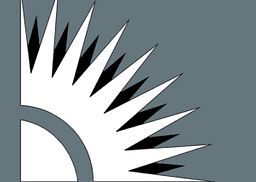EDI in Action: CASPA Fee Assistance Program Grows
People who are underrepresented in medicine often struggle with the burden of application costs and other fees. They may choose not to enter the PA profession, or they may only apply to one or two schools, potentially limiting their chances of acceptance.
In addition to application fees, applicants may have to travel to multiple programs to interview in person, if there are not virtual interviews offered. This can include the cost of transportation, lodging, childcare, etc. Estimates put the cost of traveling for each interview at $650, so if an applicant has three in-person interviews, the total can equal $1,950.
In addition to the CASPA application fee, some schools also include other fees, such as a supplemental application fee. Once admitted, an applicant may have to pay a seat deposit to secure enrollment that ranges from $500 to over $1000. There might also be a required background check fee of up to $75 that applicants are expected to cover.
There are even more hidden costs from the optional CASPA Professional Transcript Entry Service that ranges from $77-$150 to the GRE/GRE preparation materials which can total over $250. Other optional preparations that can increase one’s chances of matriculating to a PA program include CASPA consultations, mock interviews, and resume support that all have their own price.
Often, these costs are non-refundable. The PA Life posits that the total projected cost of applying to ten PA schools in 2024 could be as much as $5,786. PA programs should be mindful that for a PA school applicant, the total costs can be a barrier to entering the profession.
A core belief at PAEA is that an applicant’s finances should not be a barrier to applying to a PA program. That’s why we have the CASPA Fee Assistance Program. Since it began in 2010, the program has granted almost 13,000 fee waivers totaling over $2 million.
What started out as a budget of $30,000 granting 232 waivers covering one application fee per applicant in 2010-11, has grown as the needs of the applicant pool have continued to grow over the past 14 years. In 2013, the budget was increased to $50,000 and then again in 2017 to $93,000. Now, the budget stands at nearly $400,000 and in the 2023-2024 applicant cycle the program granted almost 2,000 fee waivers to cover up to two application fees per applicant.
Some PA programs opt to purchase CASPA coupon codes from Liaison and offer these to applicants who may attend their open houses or meet certain requirements such as being a first-generation applicant. These coupon codes can cover a portion of or the entire CASPA fee for their PA program.
Applicants who use a CASPA Fee Waiver or CASPA coupon code tend to apply to more PA programs than those who don’t. In practice, this benefits applicants and PA programs. Applicants have a better chance of matriculating to a PA program; PA programs have a larger pool of applicants. This larger pool of applicants increases a PA program’s odds of matriculating quality candidates.
In addition to CASPA assistance and help from programs, Physician Assistants of Color (PAC) also offers a $5,000 Diversity Matters Scholarship to BIPOC undergraduate and graduate students who are pursuing a career as a physician assistant to help with these costs.
Because application costs and fees disproportionally effect underrepresented in medicine applicants, PA programs should work to decrease financial barriers wherever possible. This could include funding their own program for supplemental application waivers, purchasing CASPA coupon codes through Liaison, offering virtual interviews, and lowering additional costs as much as possible.




